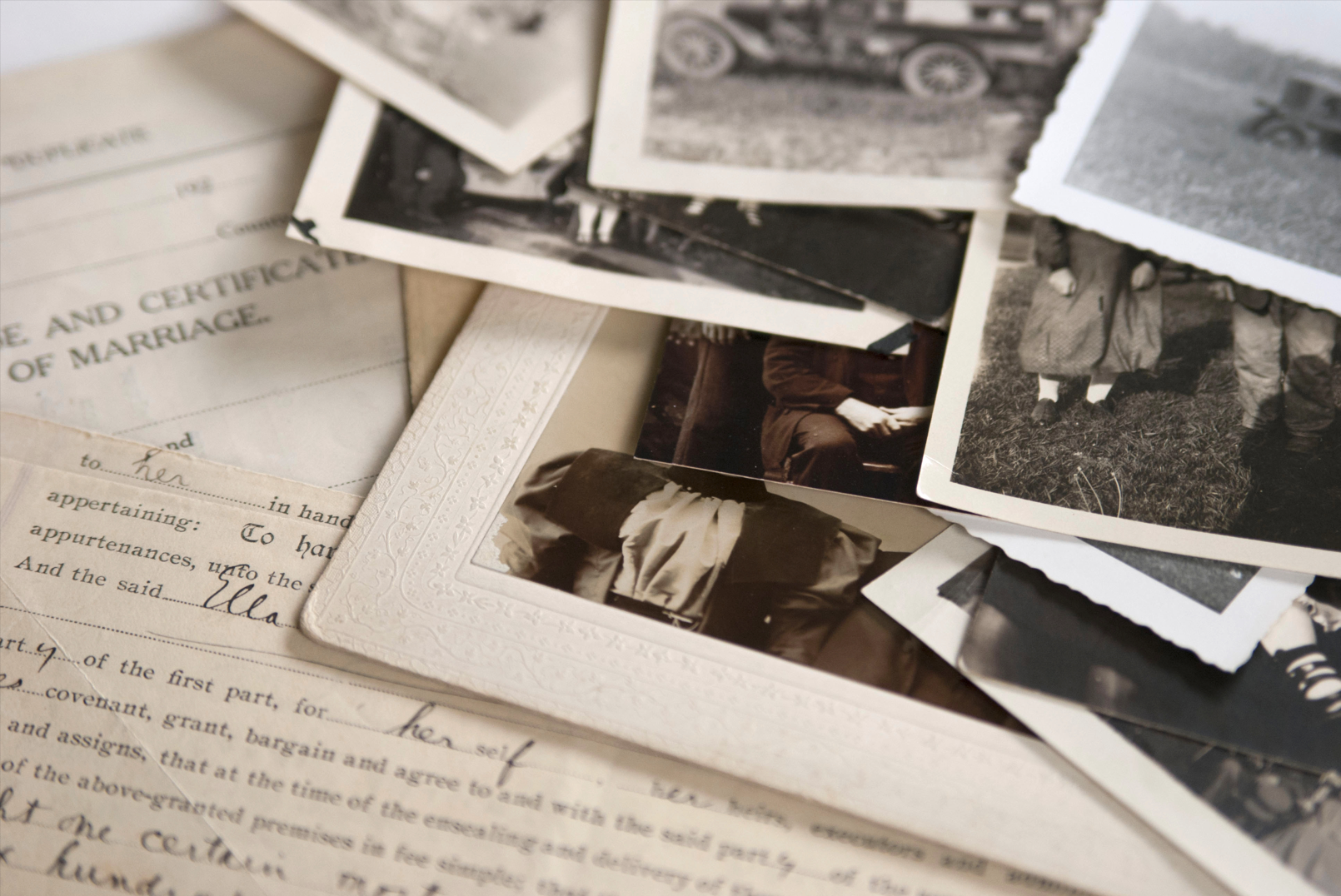Foundational to Coming To The Table is the belief in the healing power of story-telling, including the sharing of stories that are difficult and have been obscured from our histories. But what stories are “ours” to tell, and how shall we tell them? In April 2023 four CTTT/Linked Descendant members – Beverly Bevel, Leslie Stainton, Jerrie Stewart and Allison Thomas – held a frank and powerful discussion, placed in context of recent posts here on BitterSweet.
You will find links to the recording and transcript of that conversation at the bottom of this post.
In her own work, Jerrie Stewart’s search for ancestors involves navigating enslaver descendants (see her Feb 26, 2022 comment on Visualizing Our Histories, Our Stories, Part 4); in this discussion Jerrie urges:
…let’s not try to provide cover for anybody. Let’s just be honest about the situation.
In the comments on a blog post interview, Beverly Bevel recently encouraged a white descendant of enslavers just beginning her family history research, saying:
Stay focused on the absolute truth and facts you find. Share your results, hopefully with the descendants of slaves and the rest of your family. Don’t buy into the lie. You can still love your ancestors despite their horrible practice. Good luck.
Leslie Stainton’s blog post, Can Enslaver Descendants Tell Their Ancestral Stories Without Causing Further Harm?, reprints a letter from her enslaver ancestor detailing a rebellion against her ancestors, listing names of the enslaved. A comment on the post from a Hippard descendant of the enslaved offers:
I am very impressed learning about my family through your book and all your research, and I am very interested in learning more about my family history.
If you descend from an enslaver family, here are some actions you can take to share your family research.
Here four authors and family historians discuss risks of harm, challenging family lore, white investment in “appropriateness”, and the importance of objectivity and fact in unearthing, revealing, sharing stories of brutality and culpability in enslavement.
Watch the video here; read the transcript here.
— Feedback, comments, discussion most welcome & encouraged! Please scroll all the way down to add your thoughts. —


My cousin did the ancestors research with the DNA and he found out that the white man that is my grandfather (5x) was from ALABAMA HE HAD 14 ENSLAVED AFRICANS. They were listed by age. there is a 50 year old woman and a 20 year old woman, I cant tell which of the enslaved woman he impregnated. from that rape my grandfather(4x) was born. This information can be traced all the way to me. It can be traced to my children and to my future children. We don’t talk enough about our origins, we don’t mention how most of us got here.
I want to trace my ancestors path from Alabama to Florida to Woodbury, NJ to California, to Washington, DC to Baltimore.
I am very proud of my beginnings and I so love my ancestors, all of them.
the way to uncover shame is to bring it to light.
Sheila Gaskins
Sheila, I would highly recommend that you join Linked Descendants. This work is best done in community with others on the same path. Here is a link: https://comingtothetable.org/linked-descendants-working-group
We have a supportive community, research tips and great programs.
Many of the freedmen families stayed on my enslaver family’s plantation after the Civil War. And maintained close economic and personal relations through the 1970s. Now all these people are gone including the story tellers of my family. but I was able interview their children and grand children and great grand children on camera. I will try to weave their stories together sometimes using anecdotal detail to help tell the story of who these people were—black and white. Tell their stories. Preserve their history with as much verity that I can find and use speculative support for gaps and drop outs. We will see what emerges and if I can actually preserve the history of a time and place. If not me, who?